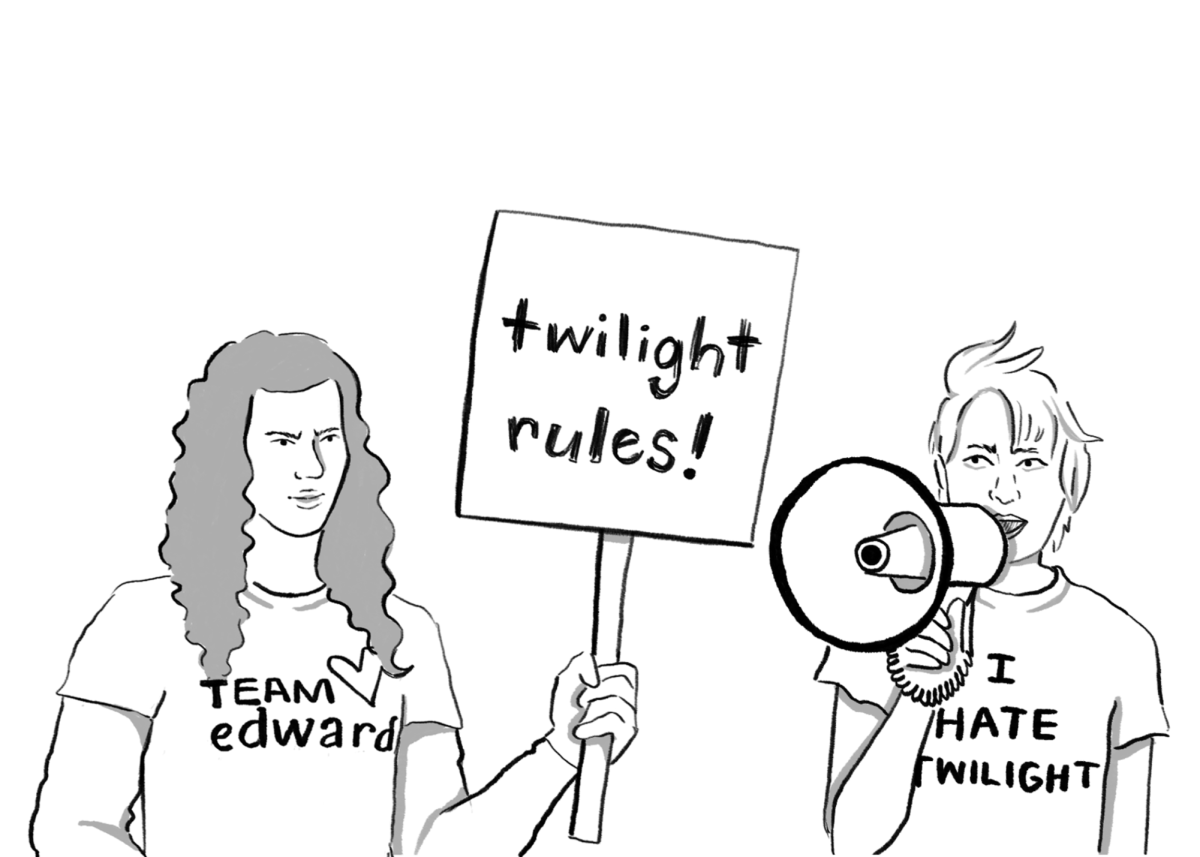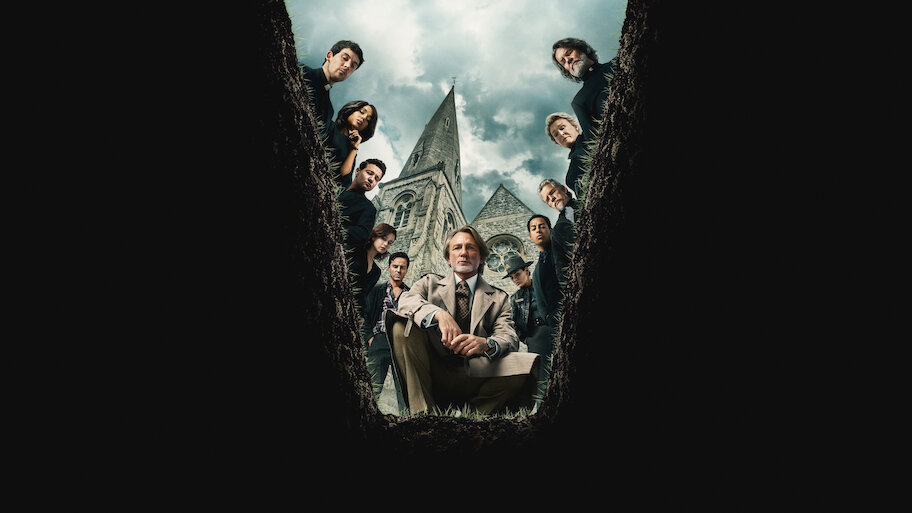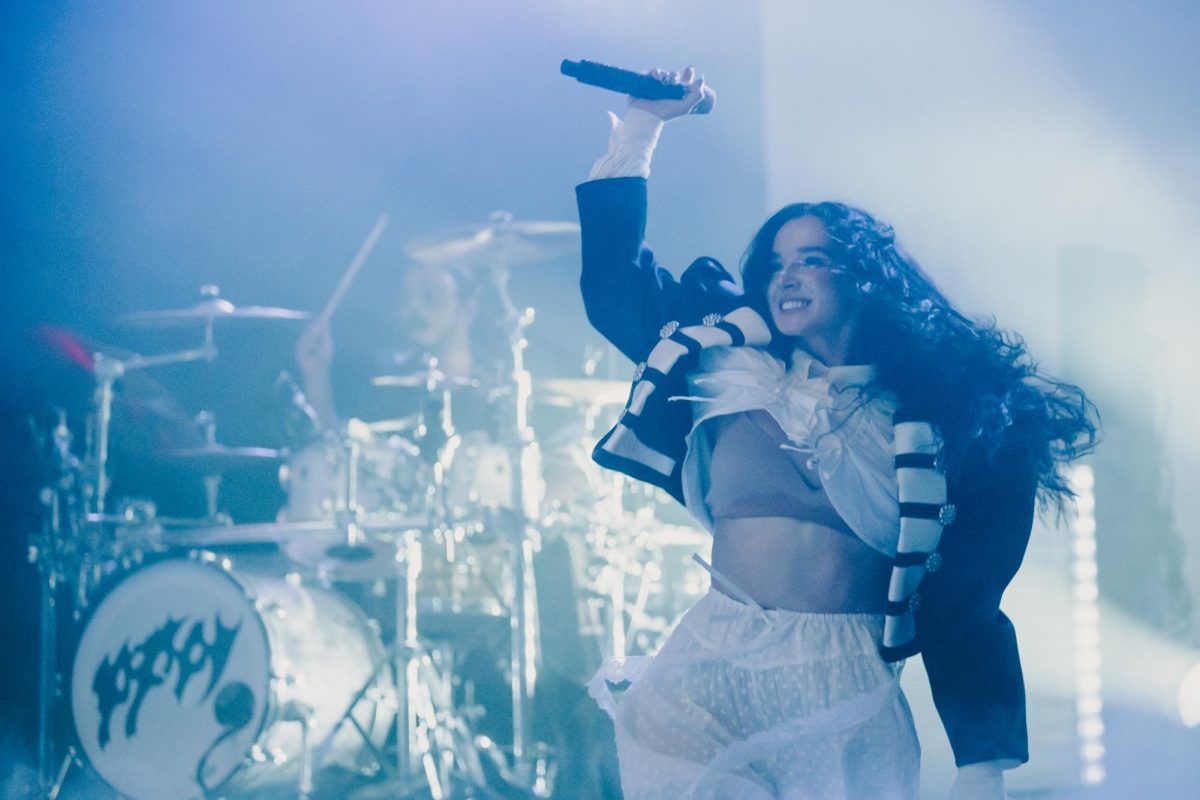To Suck
Amrutha Ravi (Staff Writer)
Every time I watch the “Twilight” movies, I tell myself they can’t possibly be as bad as I remember. And yet, every watch proves me wrong.
“Twilight” isn’t just cringey or outdated — it’s a perfect storm of bad writing, awkward performances, and toxic ideas of what love should look like. Somehow, the film manages to be both melodramatic and emotionally hollow, dragging you through two hours of sighing, staring, and sparkling with absolutely no self-awareness.
Bella Swan, the supposed protagonist, is less of a character and more like a blank page for audiences to project onto. Her personality revolves around Edward Cullen, a 104-year-old vampire who mistakenly believes emotional manipulation is romance and love. “Twilight,” however, frames his possessiveness over Bella — whether that be him watching her sleep, dictating who she sees, or controlling her life decisions — as passion, all in the name of “love.” It feels more unsettling than swoon-worthy. The ideal romance is apparently one where a woman’s independence dissolves the moment a man with cheekbones and trauma enters the room.
It also doesn’t help that “Twilight” treats its secondary characters and cultural context with equal carelessness. The portrayal of the Quileute Tribe is tone-deaf at best and exploitative at worst. Watching them use a real Native community as a supernatural gimmick — especially without providing them any financial compensation — feels like sitting through a time capsule reflecting Hollywood’s usual ignorance dressed up as teen fantasy.
Even on a purely cinematic level, “Twilight” constantly falls flat. The dialogue sounds wooden, the pacing drags, and every emotional beat feels over-rehearsed. Kristen Stewart and Robert Pattinson — two otherwise talented actors — seem trapped in a script that refuses to let them breathe. What should feel like a high-stakes romance feels more like a parody of yearning and longing unnecessarily stretched over five films, each more absurd than the last.
“Twilight” survives our times purely due to its memeability. It’s entertainment by accident, fun to mock and impossible to take seriously. Maybe that’s the franchise’s only redeeming quality: It unites people through its collective cringe. I don’t watch “Twilight” because I necessarily enjoy it. I watch it — if I must — to remind myself how easily a film can disguise itself as a love story when, really, it’s just a cautionary tale with better lighting.
Not to Suck
Thi Tran (Senior Staff Writer)
Say what you want about melodramatic love triangles and somewhat concerning plot points — Jacob imprinting on Bella’s literal infant daughter? — there’s no denying that the “Twilight” saga is iconic in every sense of the word. The aggressively blue color palette, the monotone line delivery, the recognizable soundtrack, and the ridiculous one-liners like “Hold on tight, spider monkey” make “Twilight” a cinematic fever dream that is both laugh-out-loud funny and endlessly rewatchable.
“Twilight” had a vision. It knew exactly what it wanted to be: a dramatic, slightly awkward yet utterly sincere teenage fantasy about falling in love so hard it might actually kill you. There’s something refreshing about how unapologetic it is — unironic, trashy teen-girl media doesn’t get much better than this.
And honestly, we need more of that. “Twilight” was one of the last major franchises made directly for a teenage-girl audience. It didn’t wallow in the melancholy of “The Virgin Suicides” (1999) or expose the raw, dangerous edges of girlhood like “Thirteen” (2003). “Twilight” lets teenage emotions be loud, dramatic, and a little ridiculous, treating this intensity not as something to fear, but as something worth centering. The incorporation of the vampire storyline turned it into something magical — dramatic enough to feel real but unrealistic enough to serve as escapism.
Somewhere along the way, Hollywood stopped making movies like “Twilight.” Studios decided that teen-girl media wasn’t serious enough, and now our pop culture is so scared of being cringe that it’s forgotten how to have fun. Maybe that’s why we have 11-year-old girls wearing full faces of makeup and 25-year-old women having to stand shoulder-to-shoulder with tweens at the Sombr concert. There’s a void where teen media used to be, and it shows in today’s pop culture. The “Twilight” era gave teenage girls something to obsess over, to mock lovingly, and to grow up alongside. It was messy, it was weird, it was sparkly — it was theirs.
I unapologetically love “Twilight.” I rewatch it every fall with my younger sister and constantly quote, “Bella, where the hell have you been loca?” like the script is a sacred text. It’s no arthouse cinematic masterpiece, but it doesn’t need to be. “Twilight” is funny, nostalgic, and a reminder of simpler times, when the only thing that really mattered was whether you were Team Edward or Team Jacob.













